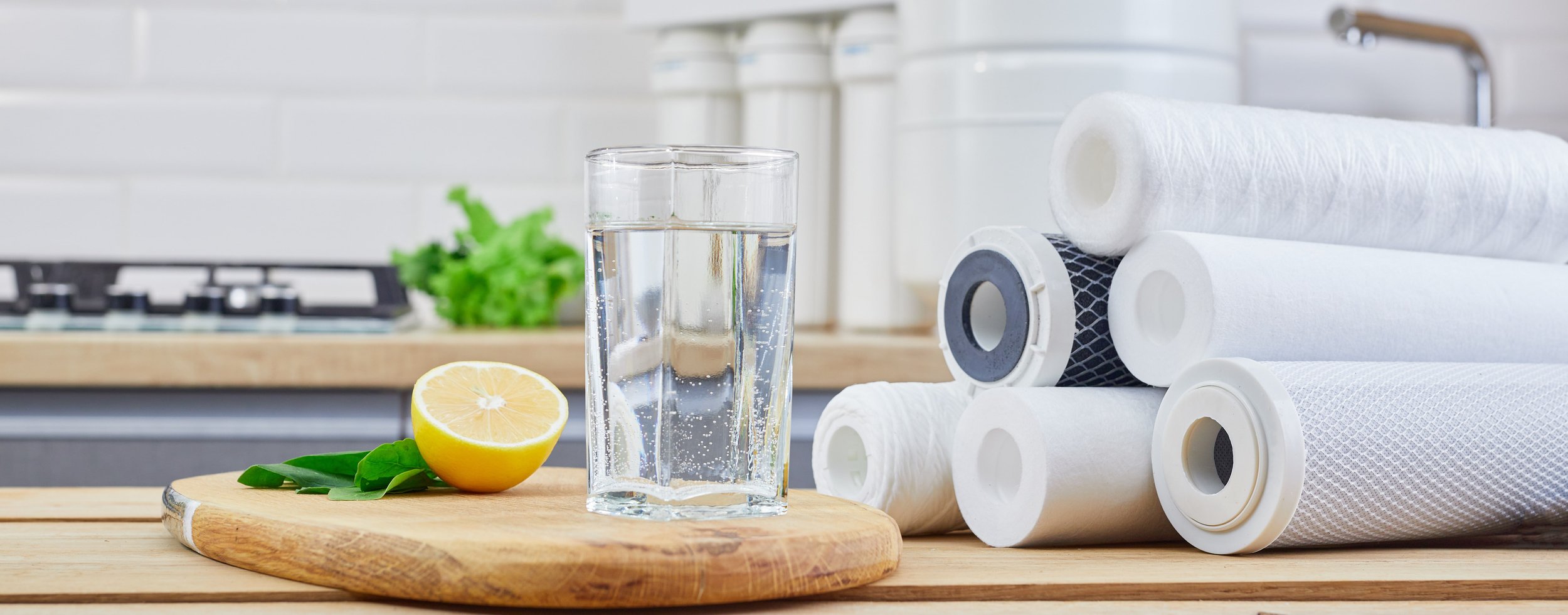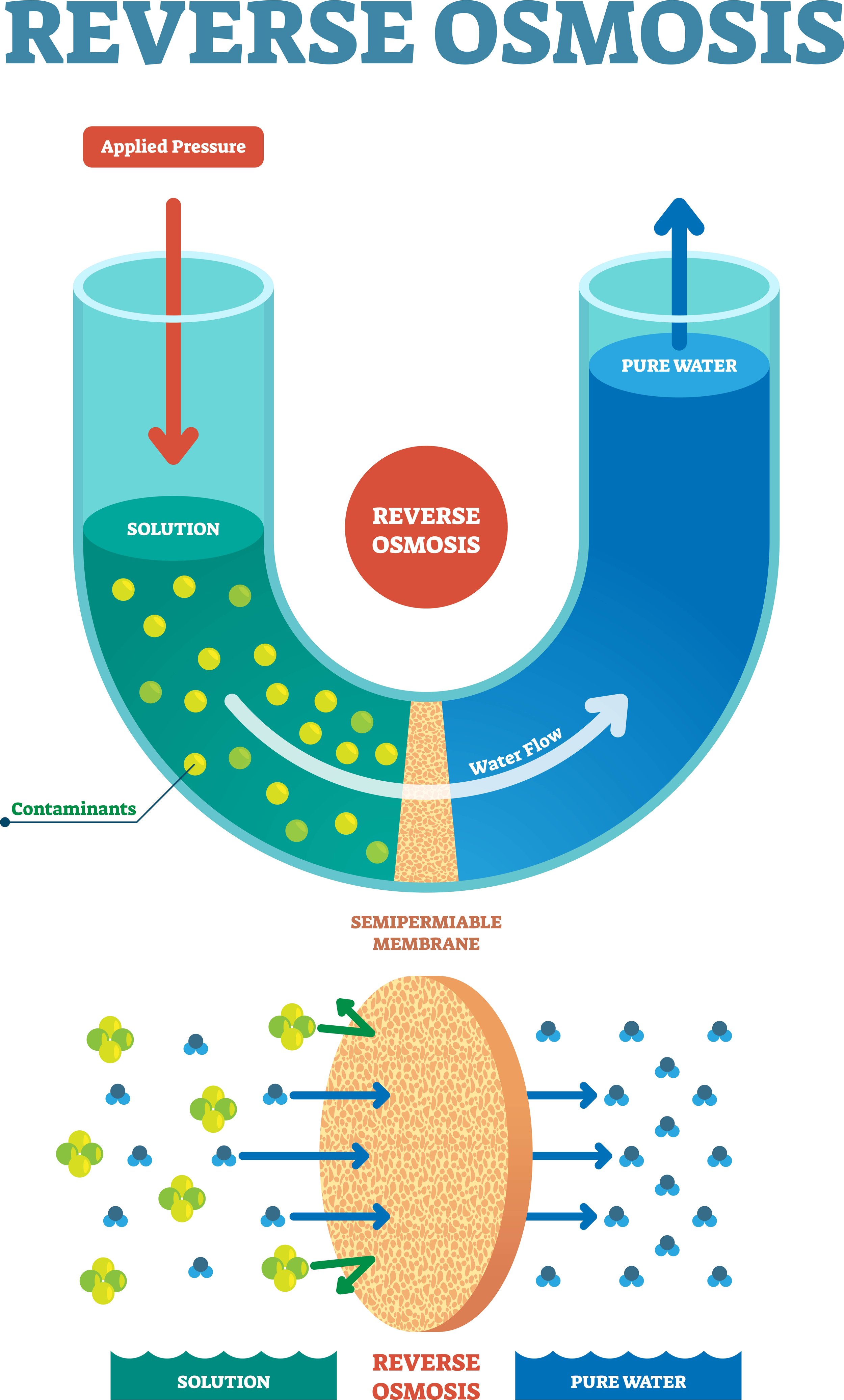Reverse Osmosis Water Filters And Why It’s Worth The Investment
Estimated Reading Time: 4 minutes
Introduction: What is Reverse Osmosis Water?
Reverse Osmosis water is a type of water purification process that forces water through a membrane that blocks larger molecules and allows smaller molecules, such as H2O, to pass through. Along with other filters, this removes all the impurities from the water.
The technology was first developed in France in the 1950s, but it wasn’t until 1973 that it became commercially viable. Reverse osmosis water filters are used in many different countries around the world and are very popular because they can produce high-quality drinking water that is safe for everyone to consume.
How Does Reverse Osmosis Work?
Reverse Osmosis works by using the semi-permeable membrane along with high water pressure to remove ions, molecules, and larger particles from the water. The pressure created by the pump creates a high-pressure stream of water at the membrane surface. The pressure forces the water through the membrane and out of the system. The pressure also forces contaminants in the other direction, back into the feedwater stream.
This method effectively removes minerals from the water, awaiting other filtration or the re-mineralizing process. Specifically, post-filter, Reverse Osmosis is capable of removing up to 99%+ of the dissolved salts (ions), particles, colloids, organics, bacteria, and pyrogens from the feed water.
Because of this, Reverse Osmosis is used in many different industrial processes for the purification of liquids and gases. It can be used to purify water from natural sources or from wastewater streams from industry or agriculture.
Benefits of Reverse Osmosis Over Other Water Treatment Options
The unique method using the semipermeable membrane filter is effective when it comes to filtering out larger, and more harmful contaminants from the water. Because the process forces the waste water back into the water stream, it does not collect into the system, allowing the filter to work effectively for long periods of time (multiple years), without filter replacement.
Better tasting water, especially with our water purification system, the Advanced Reverse Osmosis Drinking Water Station; Removing contaminants creates a more pure taste, but quality filtration units will re-mineralize the water with necessary minerals while maintaining great drinking water taste. Reverse Osmosis filtration is a safe method that does not use any chemicals for treatment. It’s good for the environment and good for us.
Pros and Cons of Installing a Reverse Osmosis Filter at Home
The pros of owning a proper Reverse Osmosis drinking station are that it can pay for itself quickly when compared to purchasing bottled water. In the long run, it is an inexpensive and effective way to safely filter your water while only costing pennies on the gallon.
Installation is easy when our experienced technicians are on the job; your system can easily be installed under the kitchen sink with its own drinking water tap and storage tank installed. It can also be installed in your basement out of sight, and/or connected to your fridge water line if requested.
Maintenance is almost non-existent, our system has easy-to-switch filters that only require changing every few years - depending on the amount of use. This includes the RO membrane~ some water filtration systems require yearly changes, this is typically due to low-quality parts.
A con would be that the upfront purchase cost can be high depending on the quality of the system selected, however, with affordable financing the system can easily be purchased.
The most important pro is simple: the water quality is improved, the taste is better, and it filters harmful substances such as lead, copper, mercury, nitrates, bacteria, and more. Your drinking water becomes safe, anywhere, in any application, when using a quality system.
Conclusion: Is it Worth Investing in a Residential RO System for Your Home?
Keeping contaminants out of your tap water benefits your health, period. While the benefits of natural spring water vs reverse osmosis water are a different topic and not discussed here, regular consumption of contaminated water can lead to illness. Many people do not consider just how much water we should consume regularly. If you’re wondering just how much water you should consume daily, try this calculator to simplify the answer for you.
From yourself to your family, kids, and pets; pure water is something that is affordable and should be considered by everyone, after all, much like air, any water filtration is better than no water filtration, however, consider top quality units such as our Advanced 7-Stage Reverse Osmosis Drinking Water Station for the best tasting and free from contaminants water.


